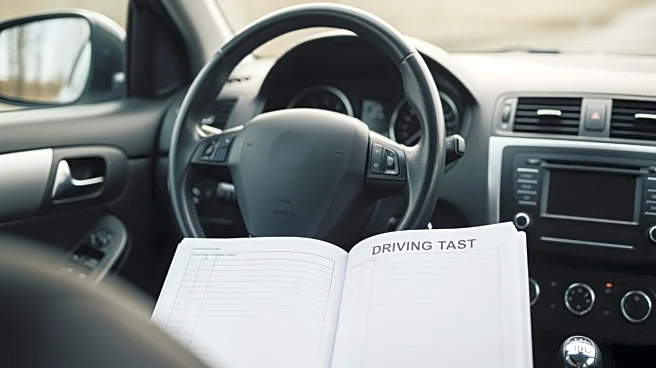What is the story about?
What's Happening?
HMRC has reinstated its policy of directly accessing bank accounts to recover unpaid taxes from individuals who have the means to pay but have failed to do so. This policy, paused during the pandemic, has been reintroduced in a 'test and learn' phase. The move is part of broader financial updates affecting consumers, including changes in ticket sales practices by Ticketmaster and adjustments in mortgage rates by major banks. Additionally, the UK government is considering increasing NHS medicine prices, influenced by international pricing pressures.
Why It's Important?
The resumption of HMRC's direct bank account access for tax recovery highlights the government's efforts to ensure tax compliance and recover owed funds efficiently. This policy could impact individuals who have outstanding tax liabilities, prompting them to address their financial obligations promptly. The broader financial updates, including competitive mortgage rates and energy tariff changes, reflect ongoing shifts in the economic landscape, affecting consumer choices and financial planning.
What's Next?
As HMRC tests this policy, individuals with unpaid taxes may need to reassess their financial situations and ensure compliance to avoid direct account access. The competitive mortgage rates and energy tariff changes may lead to increased consumer activity in these sectors, as individuals seek to optimize their financial commitments. The government's consideration of NHS medicine price increases could also lead to public debate and policy adjustments in the healthcare sector.
Beyond the Headlines
The reintroduction of HMRC's policy raises questions about privacy and the balance between government authority and individual financial autonomy. As financial institutions and government agencies navigate these changes, there is potential for increased scrutiny and public discourse on the ethical implications of direct financial interventions.














